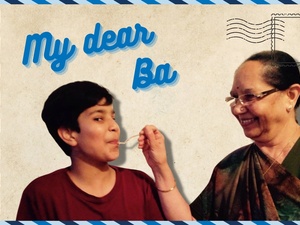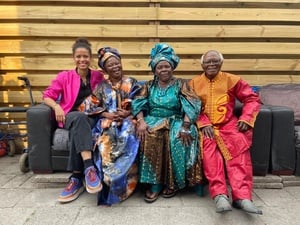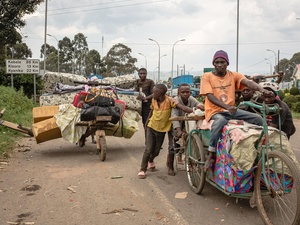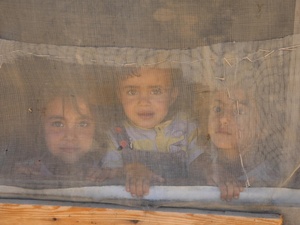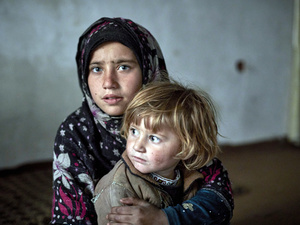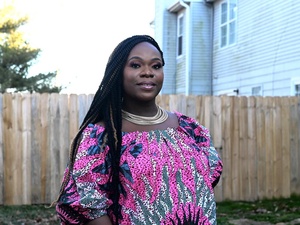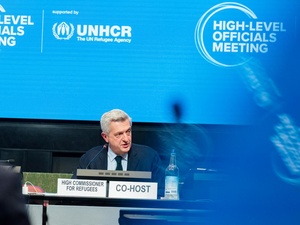UNHCR helps reunite Somali mother and son in UK
UNHCR helps reunite Somali mother and son in UK
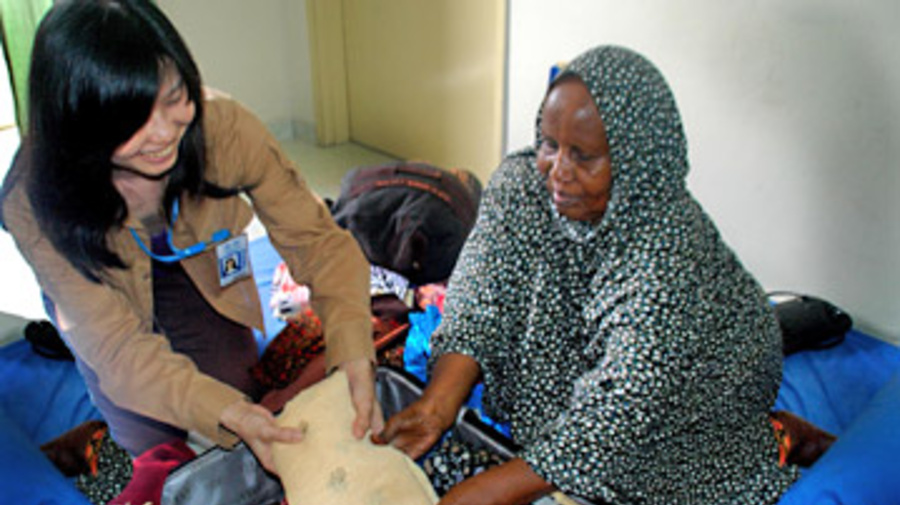
A UNHCR staff member helps Rahma pack a suitcase in preparation for her flight to London.
KUALA LUMPUR, Malaysia, June 11 (UNHCR) - For nearly two decades, conflict kept a Somali mother and her children apart. But now, with the help of UNHCR staff in Malaysia and the refugee agency's resettlement programme, Rahma has been reunited with her family in the United Kingdom.
The 68-year-old left Kuala Lumpur for London earlier this month, barely a year after a missile slammed into her home in the town of Afgooye, not far from the embattled Somali capital of Mogadishu, and persuaded her that it was finally time to leave. She had sent her two sons away to safety in 1989, knowing that she might never see them again.
"They disappeared for more than a year with no news and I prayed every night for their safety. I thought I would never hear from them again. Then one day I received a phone call from Barre and he told me he was alright," Rahma told UNHCR staff members before leaving Malaysia.
Barre, Rahma's oldest son, had managed to reach the United Kingdom and found a job as a bus driver in London. Her second son, Mohamed, ended up in New Zealand. They kept in touch over the years through occasional phone calls, hoping for a reunion one day.
That possibility came closer to reality and - conversely - more remote, when Rahma fled Somalia last year, badly traumatized by the destruction of her home and her narrow brush with death.
Leaving Somalia with some United States-bound friends meant that she now had a real chance to reunite with her family. The friends took her to stay with Somali students in Malaysia, but when she got there she realized that she did not know how to get in touch with her offspring.
"My son did not know I had left Somalia and had come to Malaysia. I did not know how I would contact him because I had lost his number in London. I was certain I would never see him again," a tearful Rahma recalled.
Rahma applied for asylum in Malaysia and then contacted the UN refugee agency in Kuala Lumpur for help finding her sons; almost immediately staff began trying to trace Barre, who had simultaneously begun a desperate search for his mother after hearing that she had left Somalia.
"An e-mail came to our office from Barre asking if his mother had come to see us," said Yukiko Iriyama, head of UNHCR's resettlement section in Kuala Lumpur. "We were happy to be able to tell him that his mother had approached our office just a few months before that, and that we had been trying to locate him."
Rahma was placed on UNHCR's resettlement programme and, within a few weeks, received the go-ahead to join her son in London. "We are grateful to the United Kingdom authorities for facilitating Rahma's departure with such expediency," said Iriyama. "We see a lot of tragedies in our work, so it feels very good to be part of a happy ending with Rahma and her family."
UNHCR staff in Kuala Lumpur said Rahma became more and more excited as the day for her departure neared. "When we met her a few weeks ago, she kept complaining of pain in her joints and she was looking rather despondent. Now, there is a bounce to her walk that wasn't there before," said Anne Loh, a senior resettlement clerk.
The thought of a new life in a foreign country did not daunt her. "I am excited to go to London, my son will do everything for me. I think of how different my life will be. Last year, I lived in fear; I could not sleep at night because of the sounds of guns. Now my spirits are high, I am happy," said Rahma, adding: "I am very lucky, my story is different than other refugees who never meet their families again."
By Yante Ismail in Kuala Lumpur, Malaysia


